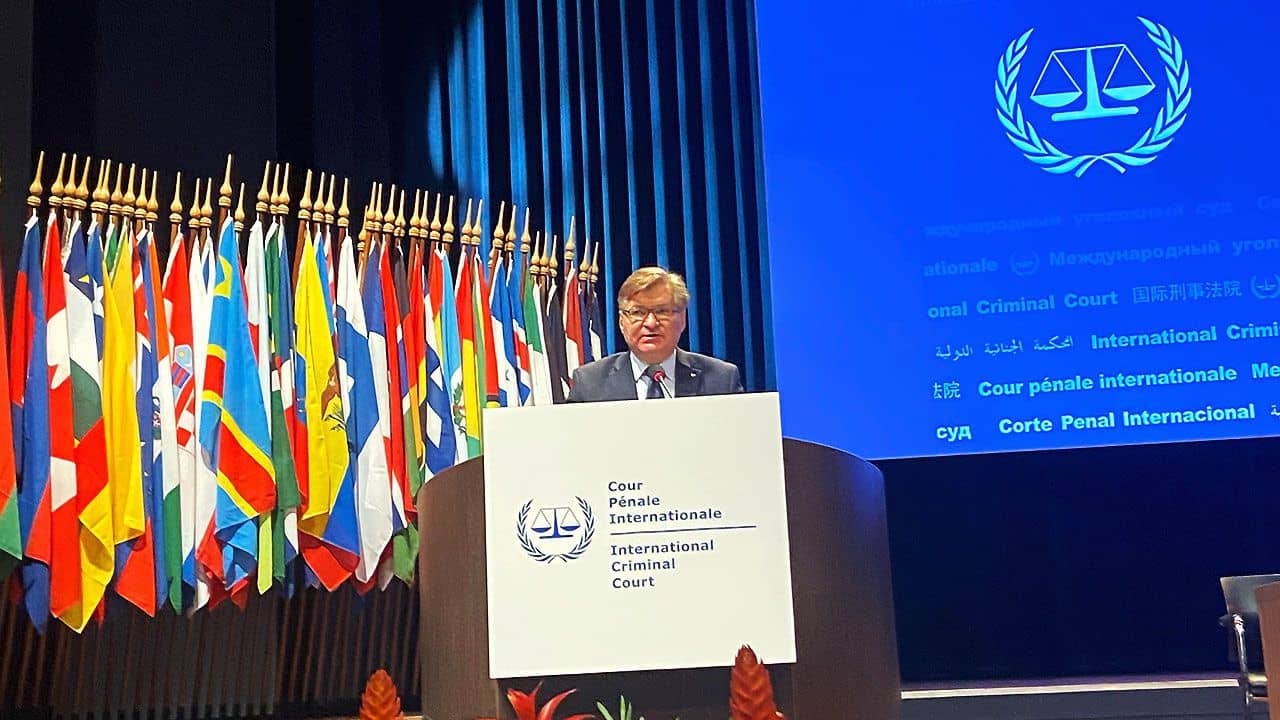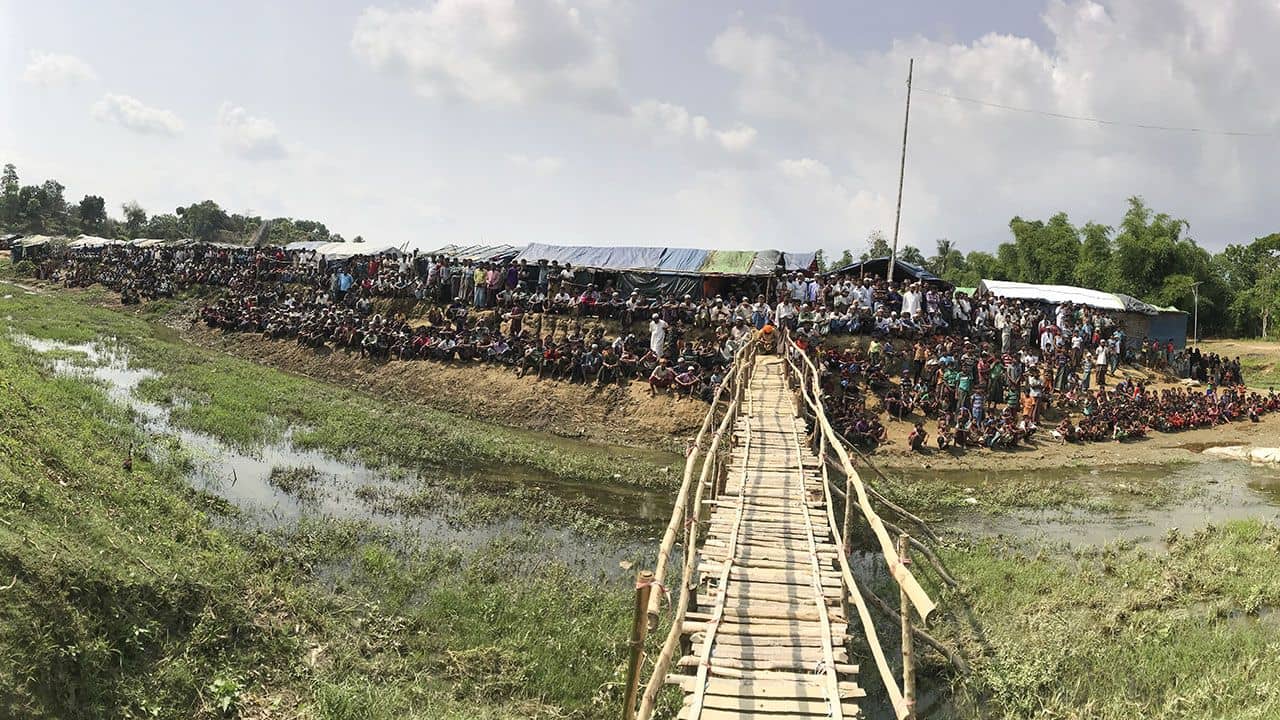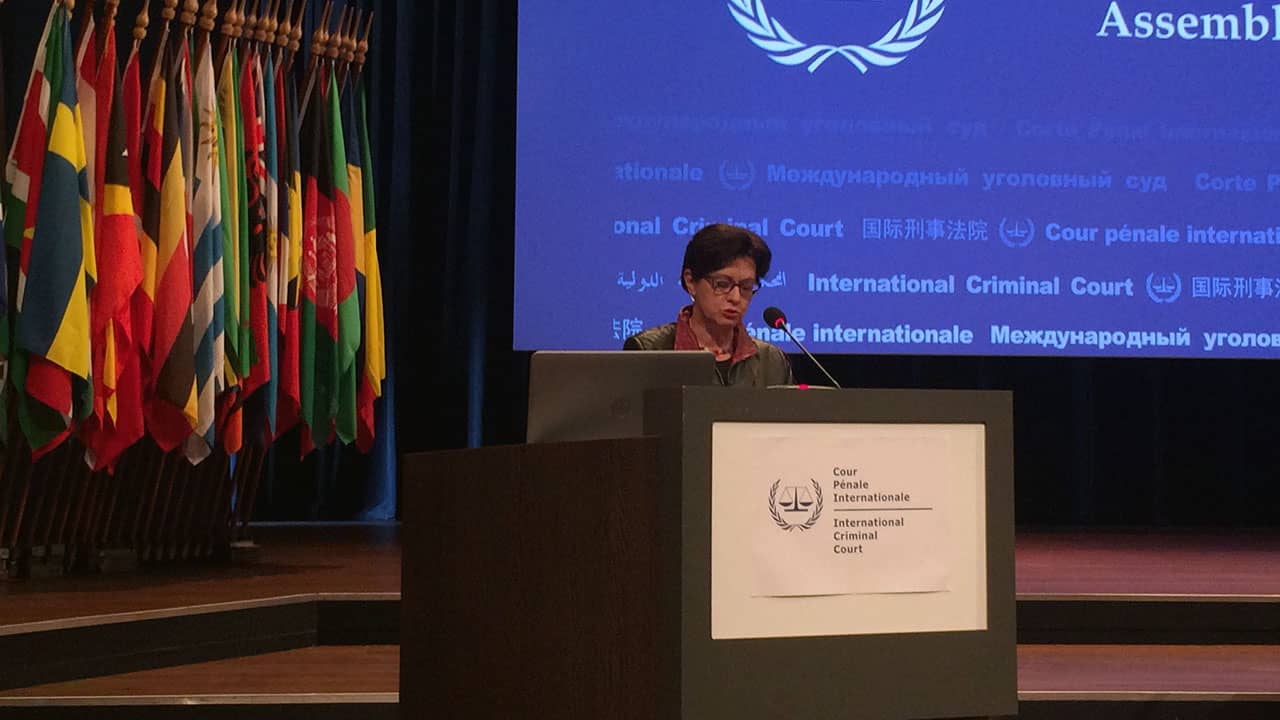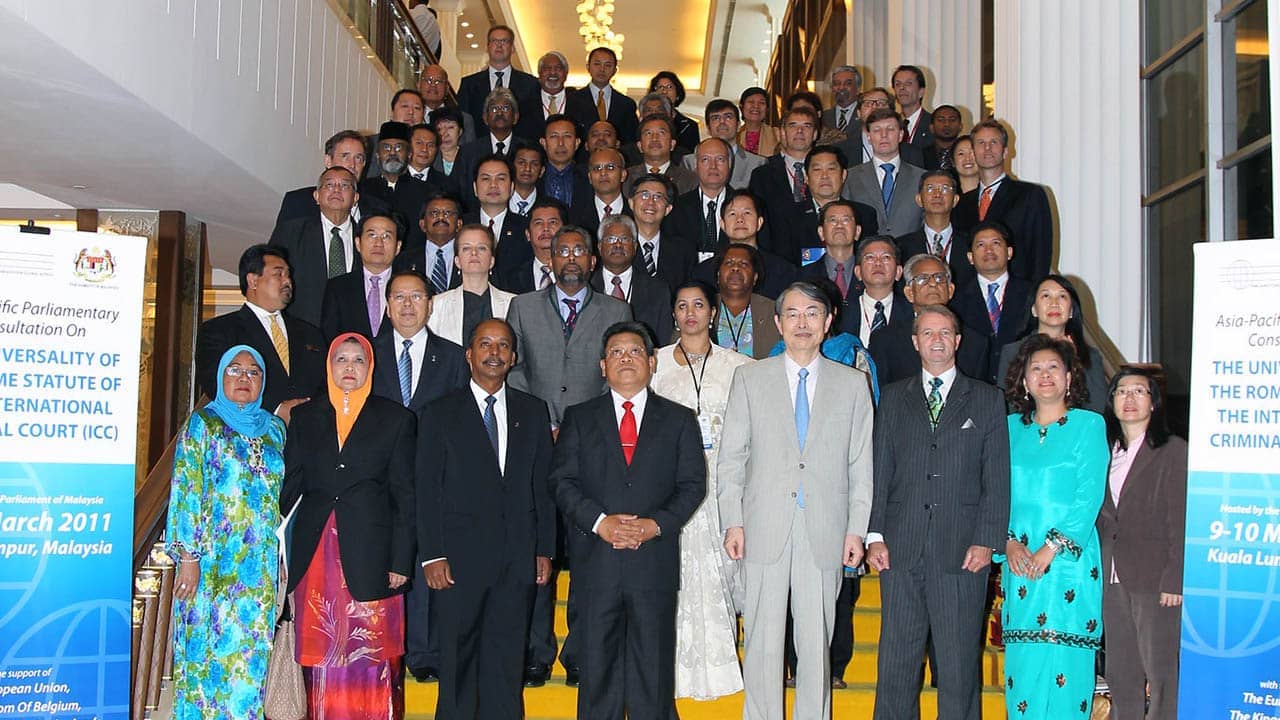On 22 March 2010, the Cabinet of Bangladesh adopted the decision to ratify the Rome Statute. The instrument of ratification was deposited with the UN Secretary General on 23 March, during the resumed session of the 8th Assembly of States Parties (ASP) of the ICC that was taking place in New York. Having deposited the instrument of ratification, the Ministry of Foreign Affairs of Bangladesh made a declaration at the ASP as representative of the new State Party, an act which was warmly welcomed by the ASP. Bangladesh became the 111th State to ratify the Rome Statute.
Before Bangladesh ratified the Rome Statute, PGA was working with Parliamentarians in Bangladesh for almost two decades. In 2002 a consultation seminar on ratification of the Rome Statute on the ICC in South Asia, organized by PGA in Delhi, India, was held. Several legislators from Bangladesh came to Delhi. Since that time PGA member from all over the world as well as the PGA Secretariat have encouraged, liaised with and advised its Members in Bangladesh, to advocate for ratification of the Rome Statute.
Rome Statute
Bangladesh signed the Rome Statute on 16 September 1999. Bangladesh deposited its instrument of ratification of the Rome Statute on 23 March 2010.
Bangladesh became the 111th State to ratify the Rome Statute. Bangladesh was the first country in the South Asia sub-region to take this historic step.
Kampala Amendments of 2010
Bangladesh has not yet ratified the Amendments to the Rome Statute adopted by the 2010 Review Conference (Kampala Amendments) on the crime of aggression and on the use of certain weapons in armed conflict not of an international character.
Bangladesh attended the Review Conference and joined the consensus to adopt the two Kampala Amendments.
Status on the domestic implementation of the Rome Statute
In 2015, the Foreign Minister Abul Hassan Mahmood Ali reiterated Bangladesh’s commitment to promote the universalization of the Rome Statute during his meeting with ICC Deputy Prosecutor James Stewart.
The International Crimes (Tribunals) Act, 1973, as amended in August 2009, enables investigation and prosecution on the crime of genocide, crimes against humanity, war crimes, crime against peace, and other international crimes.
The legislation provides setting up of one or more Tribunals, for these crimes committed before or after the law came into force in July 1973. Under it, the Government can establish Investigating Agency, appoint Prosecutors and Judges.
Agreement on Privileges and Immunities of the Court (APIC)
Signature and ratification status of the Agreement on Privileges and Immunities (APIC): Bangladesh has not acceded to the APIC.
Additional Agreements
Bangladesh signed a Bilateral Non-surrender Agreement with the U.S.A , on August 17, 2003 which entered into force in March 2004.
Progress and PGA Action
Bangladesh’s PGA Members are promoting the enactment of legislation on effective cooperation with the ICC and on the fulfilment of human rights standards in the ongoing crimes against humanity proceedings taking place in Bangladesh. The PGA Secretariat provides technical legal assistance.
2 March 2015- Foreign Minister Abul Hassan Mahmood Ali reiterated Bangladesh’s commitment to promote the universalization of the Rome Statute during his meeting with ICC Deputy Prosecutor James Stewart.
9-10 March 2011-Asia-Pacific Parliamentary Consultation on the Universality of the Rome Statute of the International Criminal Court (ICC): a Working Group of the Consultative Assembly of Parliamentarians for the ICC on the Rule of Law, hosted by the Parliament of Malaysia, Kuala-Lumpur where an Action Plan to Promote the Universality of the Rome Statute of the ICC in the Asia Pacific was drafted. In this documents a number of country-specific actions for Bangladesh were suggested.
22March 2010- On 22 March, the Bangladesh Cabinet adopted the decision to ratify the Rome Statute. The instrument of ratification was deposited with the UN Secretary General on 23 March
2002 a consultation seminar on ratification of the Rome Statute on the ICC in South Asia, organized by PGA in Delhi, India
Human Rights Council Universal Periodic Review
Within the UN Human Rights Council universal Period Review (UPR), Bangladesh was reviewed during the 25th session of the UPR in January 2013 where it received two recommendations the fully incorporation of the Rome Statute crimes and general principles in domestic legislation in order to enable national courts to fight against impunity. It was also recommend the accession to the APIC. During the UPR 1st cycle, Bangladesh received not recommendation related to the Rome Statute.
Additional Relevant Information
Bangladesh is a member of the Commonwealth
Bangladesh is also a member of the OIC (Organization of Islamic Cooperation)





